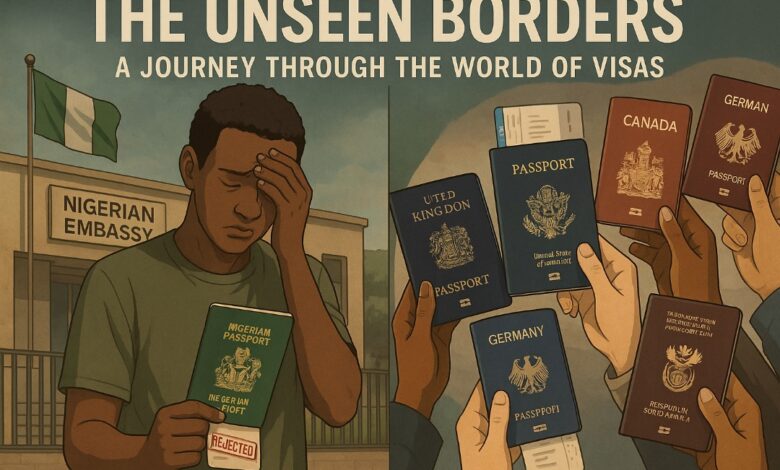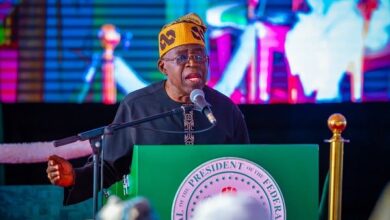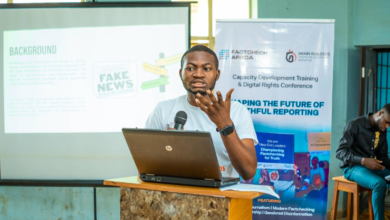
By: Sultan Usman & Mustapha Lawal
For Modupe Odele (professionally as Moe), applying for a visa from Nigeria is quick brain reset. “For nearly 8 years, I hadn’t applied for a visa in Nigeria. In 2023, I spent a lot of time in Nigeria and decided to apply for my visas from there, I got 5 rejections. 5! And this is me with such an extensive travel history and funds to back it up. Reset my brain real quick”
Visa policies are more than administrative hurdles; they serve as gatekeepers of global mobility, deciding who crosses borders and who remains restricted. The latest report from Imperial Citizenship Global reveals a sad reality, Nigerians face one of the highest visa rejection rates worldwide, with nearly 48.5% of applications denied. This trend highlights a larger political and diplomatic dynamic in how nations shape their immigration policies, emphasizing security concerns, economic interests, and historical alliances.

At the heart of these decisions lies The Politics of Borders, a system where visa rules reflect national priorities and global power structures. While some countries ease travel restrictions to promote business and tourism, others tighten entry requirements, shaping migration patterns and influencing international relations. Nigerian applicants, along with travelers from Liberia (79.38%) and Guinea-Bissau (76.59%), face heightened scrutiny, contrasting with the relatively smoother access enjoyed by South Africa (10.65%) and Seychelles (7.59%). These disparities raise important questions: What determines a nation’s visa policies? Why do some passports grant seamless access while others face overwhelming barriers?
This edition of the FactCheckAfrica series, The Politics of Borders: How Countries Decide Visa Rules, examines the hidden forces shaping global travel regulations. We explore how governments navigate diplomatic agreements, security concerns, economic protectionism, and regional biases when setting visa policies. More than just stamps on a passport, these restrictions dictate who participates in the global economy, who accesses foreign education, and who can explore international opportunities.
As visa rules continue to evolve, these policies will have lasting effects on students, professionals, entrepreneurs, and families seeking opportunities abroad. With tighter restrictions, travel becomes increasingly complex, requiring applicants to navigate lengthy paperwork, rigorous financial requirements, and extended residency criteria.
The Politics of Borders: How Countries Decide Visa Rules
Visa policies are like a game of chess, every move is calculated, and no country plays without strategy. Some passports glide through international airports with ease, while others hit roadblocks at every turn. But what really determines who gets welcomed with open arms and who faces a wall of bureaucracy? The answer lies in a complex web of diplomacy, economics, security concerns, and history. As the popular saying goes, “A soup’s taste depends on the ingredients used.” Similarly, visa rules reflect the ingredients of international relations, shaped by the flavors of friendship, rivalry, and strategic interests.
One of the biggest factors influencing visa policies is diplomatic relations. Countries that share strong political ties often extend visa-free travel or visa-on-arrival privileges to each other’s citizens. The European Union’s Schengen Area, for instance, allows seamless travel among 26 nations. On the other hand, frosty relations lead to travel restrictions. The United States and Iran have imposed strict visa policies on each other due to decades of tension. Even a shift in leadership or a disagreement at the United Nations can lead to sudden visa restrictions or relaxations.
The UAE’s evolving visa policies provide a striking case study. For years, Nigerians enjoyed relatively easy access to the UAE, making Dubai a hotspot for tourism and business. However, in 2022-2023, a silent ban was imposed, with thousands of Nigerian applicants facing unexplained rejections. This was widely believed to be linked to diplomatic tensions between both countries. The sudden policy shift left many stranded, showing how quickly diplomatic shifts can alter mobility rights. Only after high-level negotiations did the UAE begin restoring visas to Nigerian travelers, proving that diplomacy remains a major factor in visa policies.
Countries eager to attract investment and tourism often create lenient visa policies. The UAE transformed Dubai into a global business hub partly by offering visas on arrival to travelers from key economic partners. China, in a bid to boost economic growth, recently relaxed visa rules for over 40 countries. But this hospitality is selective, some nations receive easier access based on trade relationships, while others still face barriers. As the popular adage, “If your hand knows how to give, you will receive favor.” Countries benefiting from foreign investments often reciprocate with visa privileges.
Security concerns play a major role in visa restrictions. Countries assess the risks of illegal immigration, terrorism, and crime when setting policies. Some nationalities face stricter scrutiny due to past incidents. For example, the UK and US have imposed tougher visa requirements on certain Middle Eastern and African countries due to concerns over migration and security threats.
Nigeria, despite its economic significance, faces high visa rejection rates due to concerns over fraud and overstaying. A Nigerian passport holder may need extensive documentation to visit certain countries, while a traveler from a smaller nation with less economic influence may receive easier access. The Yoruba saying “Oniyangi ma ba t’emi je, t’emi o ni ba oniyangi je”, the misdeeds of a few should not ruin things for the innocent. Unfortunately, visa rules often generalize risks instead of treating applicants individually.
An X (formerly Twitter) user with the handle @politicalcritik while commenting on this, said “It’s funny when I hear people say that the main reason is the misconduct of Nigerians abroad, I just laugh. They completely ignore the real issues: bad governance, poor economic policies, the lack of respect for human lives, and even disregard for court orders.”
Visa applications often feel like an exam no one is prepared for. A single missing document or an unclear response in an interview can result in rejection. Some embassies demand extensive paperwork, while others reject applications for vague reasons.
A senior colleague of mine applied for an Ethiopian visa through the e-visa application for an event and faced silent rejection. His application was neither approved nor denied, it simply disappeared. When the event organizer intervened, the response was blunt: “Nigeria is on Red Notice.” No further explanation.
This is someone who has a Uk resident permit, a US 5 years visa and has traveled to over 20 countries without overstaying but still has to face this kind of scenario even after submitting all and mentioning all these in his document. Some visas are not outright rejected; they are ignored indefinitely, leaving travelers in limbo.
Even with perfect paperwork, the visa interview can be a minefield. A traveler’s answers must align precisely with their documents. A young entrepreneur with a registered business, return ticket, and strong financials was denied a US visa because the consular officer was “not convinced” he would return. The lesson? Keep answers brief, confident, and aligned with the paperwork.
Some rejections are not personal but systematic. In 2022, Nigerian applicants for UAE visas faced unexplained mass denials. This later turned out to be a silent ban due to diplomatic rifts. Some travelers never received official rejections, just indefinite silence.




